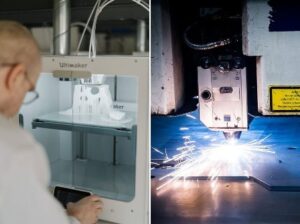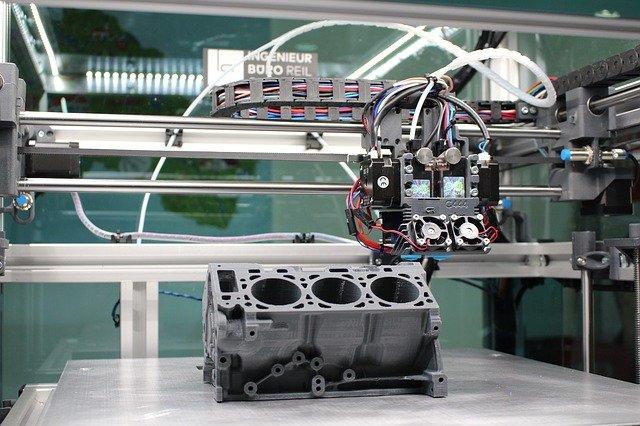In an interview predating COVID-19, Harald Malmgren made an astute forecast. He projected a diminishing need for long-distance transportation going forward – both in terms of freight and in business travel. Due to a number of converging factors, including a slowdown in cross-border trade and an evolution in the way we conduct business, Malmgren maintains that fewer goods, and fewer personnel, will be on the move as time goes on.

Harald Malmgren – a scholar in the sphere of global economic, political, and security affairs, Malmgren served as an advisor to US politicians, foreign leaders and corporate CEOs, most notably as a senior aide to US Presidents John F. Kennedy, Lyndon B. Johnson, Richard Nixon, and Gerald Ford.
Two key reasons Malmgren gives for the diminishing need for long-distance transportation, is the advent of on-demand manufacturing using 3D printing and multi-purpose machines, and a declining need for business travel (a result of increased bandwidth and significant improvements in work collaboration tools like video conferencing, file sharing, and remote monitoring). A third reason (brought up in the same Real Vision episode), is a trend towards deglobalization and the resulting decline in world trade.
On-Demand Manufacturing
 Computer programmed 3D printing (additive manufacturing) and CNC machining (subtractive manufacturing) will inevitably disrupt the production, logistics, and sales of physical goods. Thanks to automated 3D printers and machining tools (that utilize digital models that are designed in CAD software), decentralized production networks will push the production of goods closer to the consumer, democratizing manufacturing on a global scale and allowing products to be cost-effectively customized to consumers’ needs. For many industries, this eliminates the need to manufacture abroad, saving on shipping costs, shipping time, tariffs and duties.
Computer programmed 3D printing (additive manufacturing) and CNC machining (subtractive manufacturing) will inevitably disrupt the production, logistics, and sales of physical goods. Thanks to automated 3D printers and machining tools (that utilize digital models that are designed in CAD software), decentralized production networks will push the production of goods closer to the consumer, democratizing manufacturing on a global scale and allowing products to be cost-effectively customized to consumers’ needs. For many industries, this eliminates the need to manufacture abroad, saving on shipping costs, shipping time, tariffs and duties.
CNC machining (computer numerical control machining) is a manufacturing process in which preprogrammed computer software dictates the movement of factory tools and machinery. The process can be used to control a range of complex machinery, from grinders and lathes to mills and routers.
Diminishing Need For Business Travel
 Thanks to exponential bandwidth growth, innovation in networking technologies and significant cost declines, in-person meetings and business travel are becoming less of a necessity. New 5G networks are considerably faster than 4G – up to 100 times faster – resulting in much less latency when transferring large amounts of data. All this will means more effective enterprise collaboration using technologies like video conferencing and cloud computing, while augmented reality (AR) and virtual reality (VR) will become more powerful and useful business tools as well. More and more, its becoming possible to attend a meeting or inspect equipment and facilities, without actually being there.
Thanks to exponential bandwidth growth, innovation in networking technologies and significant cost declines, in-person meetings and business travel are becoming less of a necessity. New 5G networks are considerably faster than 4G – up to 100 times faster – resulting in much less latency when transferring large amounts of data. All this will means more effective enterprise collaboration using technologies like video conferencing and cloud computing, while augmented reality (AR) and virtual reality (VR) will become more powerful and useful business tools as well. More and more, its becoming possible to attend a meeting or inspect equipment and facilities, without actually being there.
Deglobalization – Decline In Global Trade
According to the Strauss-Howe generational theory, the world entered the Fourth Turning with the onset of the Great Recession in 2007. A period of crisis, when society becomes enamored by authoritarian models and moves from individualism to the collective, the result is a world with less global movement, less global trade, and less global cross-border investment than in the past.
Investing For Less Demand In Freight & Business Travel
So which companies will benefit from the diminishing need for long-distance freight and business travel? One simply needs to look at companies innovating in the areas of on-demand manufacturing, 5G technology and work collaboration tools that will benefit from significantly improved bandwidth. Below are 12 companies that fit into one of these criteria.
On-Demand Manufacturing
Enterprise Collaboration Tools





